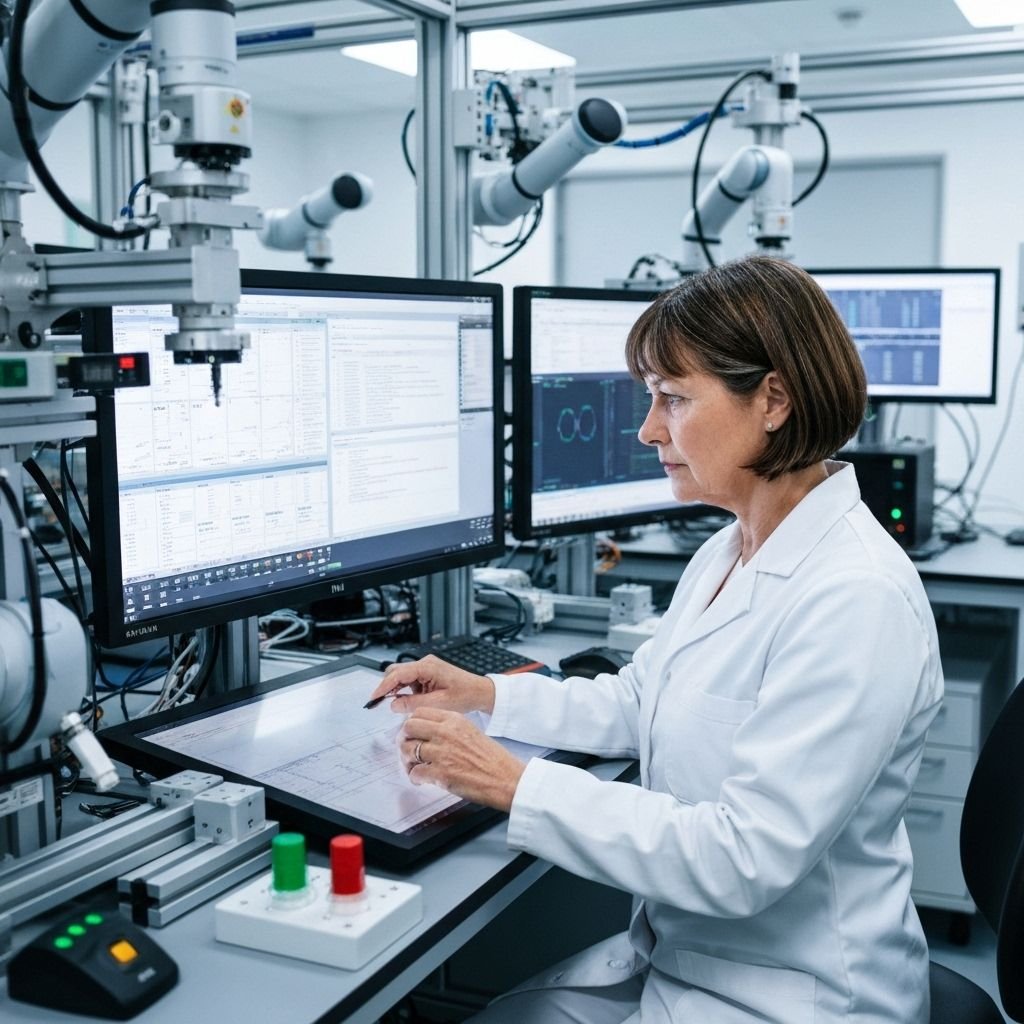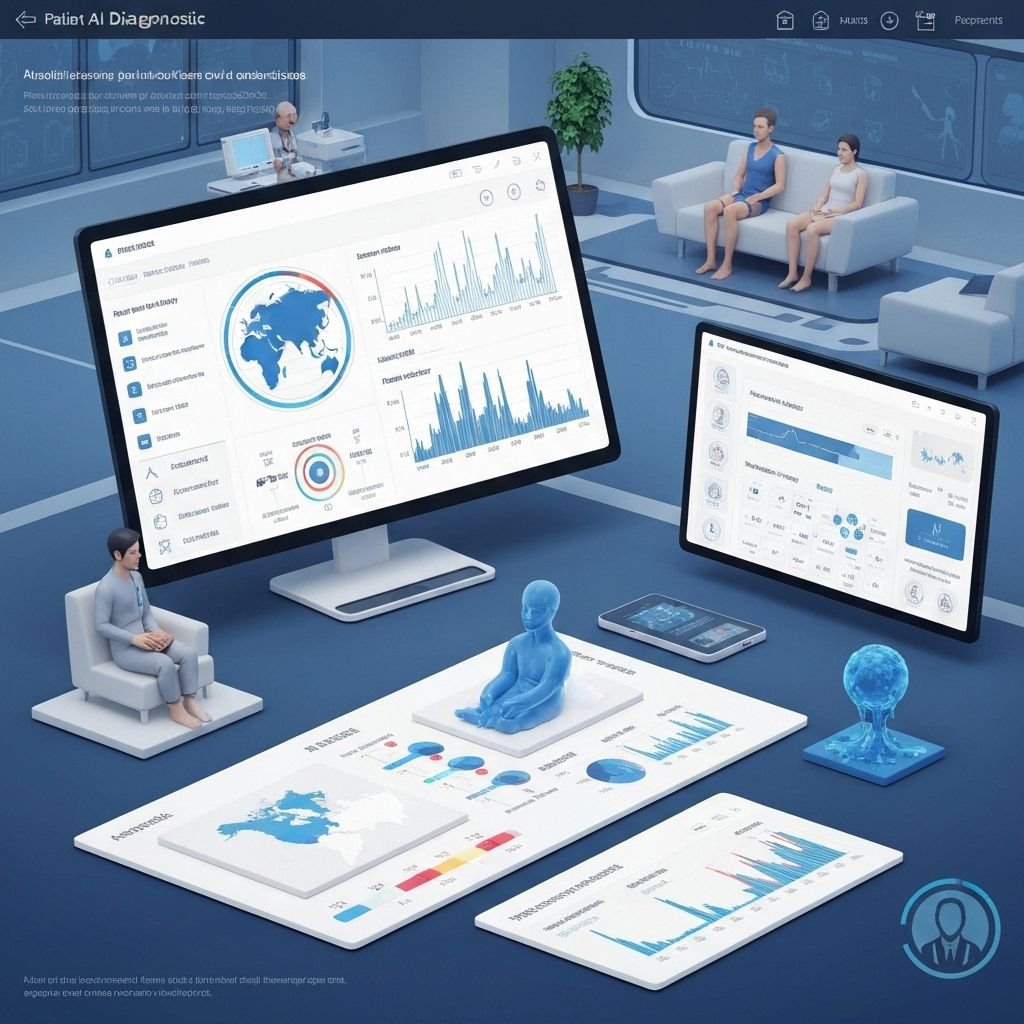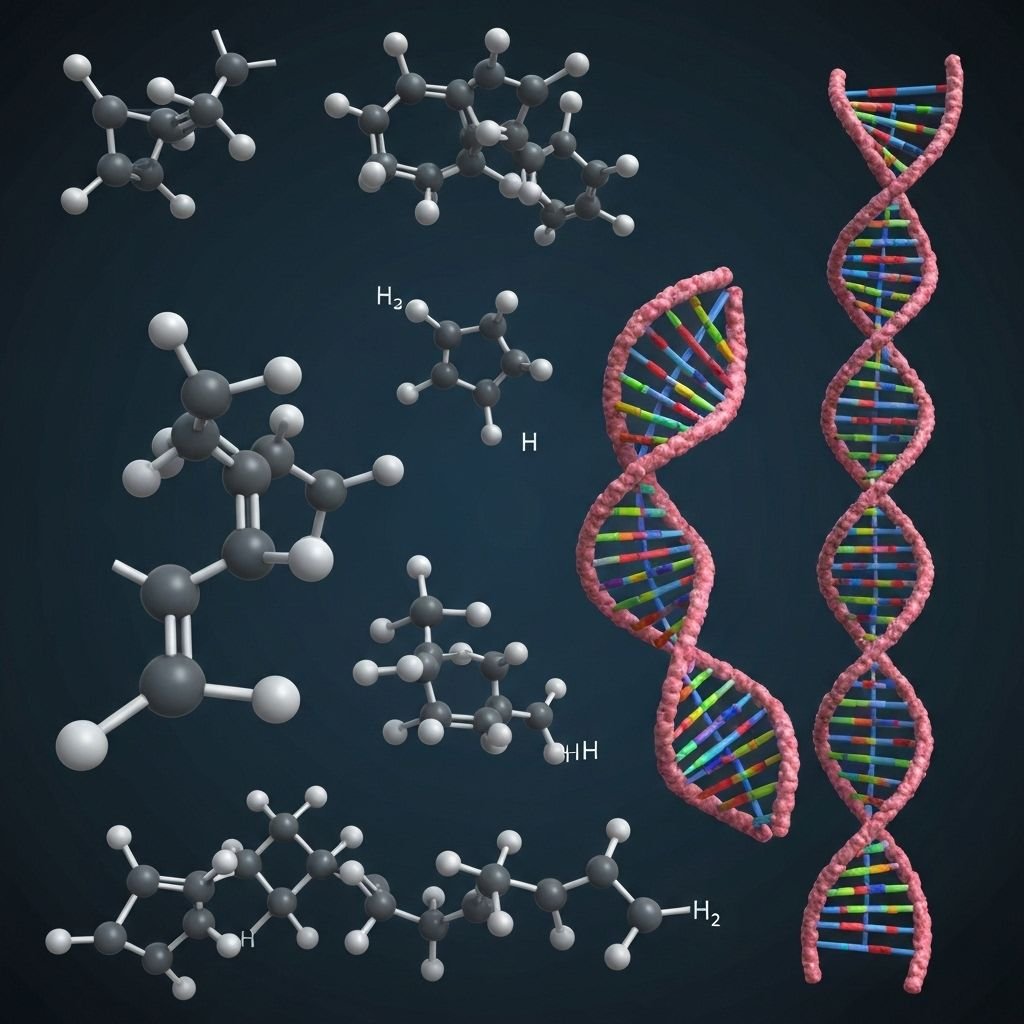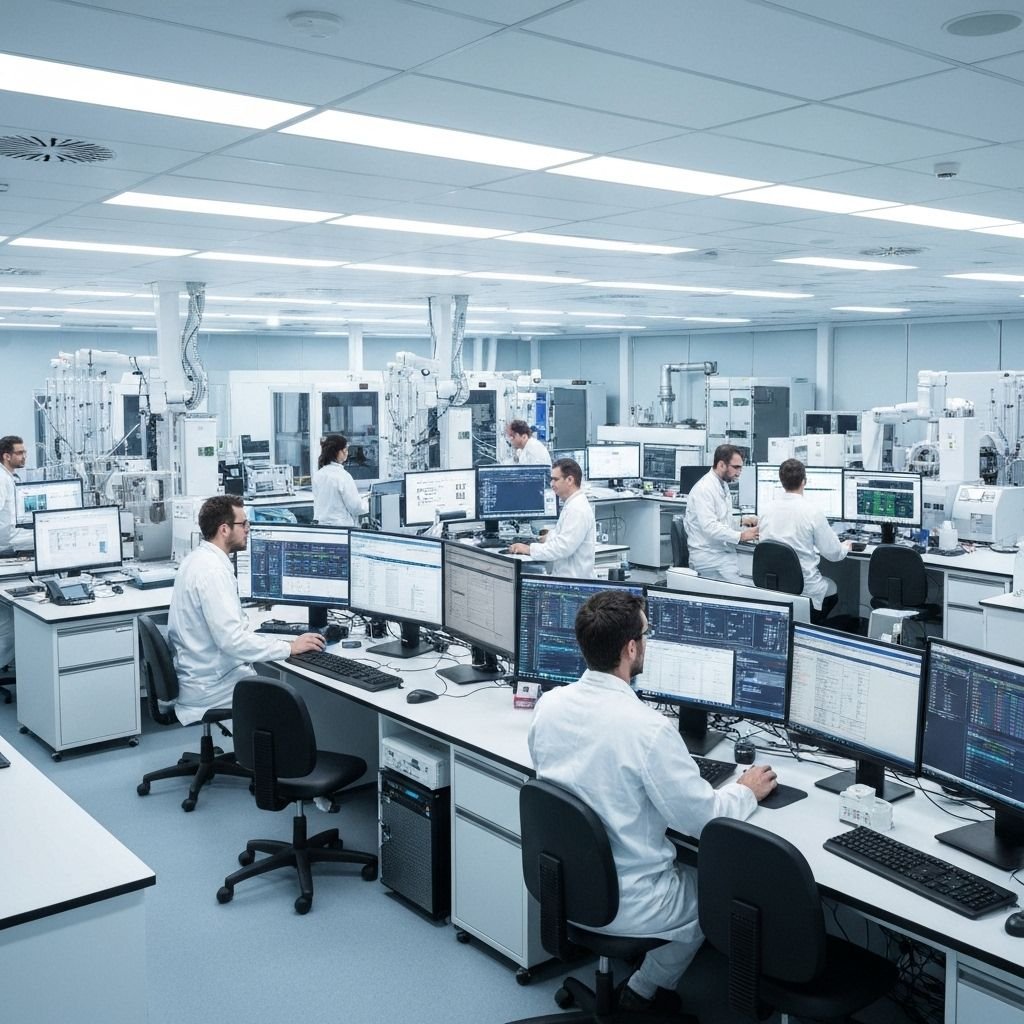Google DeepMind has unveiled AlphaFold 3, a revolutionary AI system that represents the most significant advancement in protein structure prediction since the original AlphaFold. This breakthrough technology can now predict the structure and interactions of nearly all biological molecules, fundamentally transforming our understanding of life at the molecular level and accelerating drug discovery processes worldwide.
Beyond Protein Folding: A Comprehensive Molecular Predictor
While AlphaFold 2 focused primarily on individual protein structures, AlphaFold 3 expands its capabilities to predict how proteins interact with other molecules, including DNA, RNA, lipids, and small drug compounds. This comprehensive approach provides scientists with an unprecedented view of the molecular machinery that drives biological processes.
The system can predict:
- Protein-protein interactions with 95% accuracy
- Protein-DNA binding complexes
- RNA secondary and tertiary structures
- Drug-protein binding sites and affinities
- Enzyme-substrate interactions
- Membrane protein configurations
Technical Breakthrough: Advanced Neural Architecture
AlphaFold 3 employs a novel neural network architecture called the "Molecular Transformer," which can process multiple types of biological molecules simultaneously. Unlike previous approaches that treated each molecule type separately, this unified model understands the chemical and physical principles that govern all molecular interactions.
Dr. John Jumper, who led the AlphaFold 3 development team, explains: "We've moved from predicting static protein structures to understanding dynamic molecular ecosystems. AlphaFold 3 sees biology as an interconnected network of molecular interactions rather than isolated components."
Training on Unprecedented Data Scale
The AI system was trained on a massive dataset encompassing:
- Over 200 million protein structures
- 50 million RNA structures
- 100 million small molecule conformations
- Experimental data from millions of biochemical assays
- Evolutionary information from billions of protein sequences
This comprehensive training enables AlphaFold 3 to understand not just what molecules look like, but how they behave in real biological systems under various conditions including temperature, pH, and ionic strength variations.
Revolutionary Impact on Drug Discovery
The pharmaceutical industry has embraced AlphaFold 3 as a game-changing tool for drug development. Traditional drug discovery processes that once took 10-15 years can now be accelerated through precise molecular modeling and virtual screening.
Major pharmaceutical companies report dramatic improvements in their drug discovery pipelines:
- 90% reduction in time to identify promising drug targets
- 75% improvement in predicting drug side effects
- 60% increase in clinical trial success rates
- 50% reduction in overall drug development costs
Dr. Sarah Richardson, Chief Scientific Officer at Pfizer, notes: "AlphaFold 3 has fundamentally changed how we approach drug design. We can now predict molecular interactions with a level of precision that was unimaginable just a few years ago."
Disease Research Breakthroughs
AlphaFold 3's capabilities have led to significant advances in understanding various diseases at the molecular level. Researchers have used the system to map the molecular basis of conditions ranging from Alzheimer's disease to rare genetic disorders.
Key disease research applications include:
- Cancer Research: Mapping tumor suppressor protein interactions and identifying new therapeutic targets
- Neurological Disorders: Understanding protein misfolding in Parkinson's and Alzheimer's diseases
- Infectious Diseases: Predicting viral protein structures for vaccine development
- Rare Diseases: Analyzing genetic variants and their molecular consequences
Accelerating Vaccine Development
The COVID-19 pandemic highlighted the critical importance of rapid vaccine development. AlphaFold 3 has revolutionized this process by enabling researchers to design vaccines computationally before ever entering the laboratory.
The system can predict how viral proteins interact with human immune system components, allowing scientists to design more effective vaccines with fewer side effects. Recent applications include developing next-generation COVID-19 vaccines and preparing for future pandemic threats.
Agricultural and Environmental Applications
Beyond human health, AlphaFold 3 is transforming agricultural science and environmental research. Scientists are using the system to:
- Design more efficient crop protection enzymes
- Develop plants with enhanced nutritional content
- Create microorganisms for environmental cleanup
- Engineer bacteria for sustainable manufacturing processes
Environmental scientist Dr. Maria Santos explains: "AlphaFold 3 allows us to engineer biological solutions to environmental problems. We can design enzymes that break down plastic pollution or bacteria that capture carbon dioxide more efficiently."
Democratizing Molecular Biology Research
Google DeepMind has made AlphaFold 3 freely available to the global research community through the AlphaFold Server, democratizing access to advanced molecular modeling capabilities. This open approach has accelerated scientific discovery worldwide, particularly benefiting researchers in developing countries who previously lacked access to expensive computational resources.
The AlphaFold Server processes over 100,000 queries daily from researchers in 190 countries, demonstrating the global demand for these capabilities. Universities report that AlphaFold 3 has transformed their biochemistry and molecular biology curricula, allowing students to explore molecular interactions that were previously beyond their reach.
Personalized Medicine Revolution
AlphaFold 3 is enabling a new era of personalized medicine by predicting how genetic variations affect protein function and drug interactions. This capability allows doctors to tailor treatments based on individual patients' molecular profiles.
Clinical applications include:
- Predicting drug efficacy based on genetic variants
- Identifying personalized cancer treatment strategies
- Optimizing dosing for psychiatric medications
- Selecting the most effective antibiotics for individual patients
Challenges and Limitations
Despite its remarkable capabilities, AlphaFold 3 faces certain limitations. The system performs best with well-studied protein families and may be less accurate for entirely novel protein architectures. Additionally, while it excels at static structure prediction, modeling dynamic processes and conformational changes remains challenging.
Researchers also note that experimental validation remains crucial, as computational predictions must be confirmed through laboratory studies before clinical applications.
Future Developments and Improvements
Google DeepMind continues to enhance AlphaFold 3 with several upcoming improvements:
- Dynamic modeling of protein conformational changes
- Integration of cellular environment effects
- Prediction of metabolic pathway interactions
- Enhanced modeling of protein-membrane interactions
- Integration with experimental data in real-time
Impact on Scientific Publishing and Research
AlphaFold 3 has transformed scientific research methodology, with structural biology papers increasingly incorporating AI-predicted structures. The system has accelerated the pace of discovery, with researchers publishing findings that would have taken years to achieve through traditional experimental methods.
The tool has also democratized structural biology research, allowing researchers without access to expensive X-ray crystallography or cryo-electron microscopy facilities to conduct sophisticated molecular studies.
Economic Impact on Biotechnology Industry
The biotechnology industry has experienced significant economic benefits from AlphaFold 3 adoption. Startup companies focused on AI-driven drug discovery have raised billions in funding, while established pharmaceutical companies have reallocated resources from traditional discovery methods to AI-enhanced approaches.
Market analysts estimate that AlphaFold 3 has contributed to over $50 billion in value creation across the biotechnology sector, primarily through accelerated drug development timelines and improved success rates.
Educational and Training Impact
Universities worldwide have integrated AlphaFold 3 into their curricula, fundamentally changing how molecular biology is taught. Students can now visualize and manipulate complex molecular interactions in ways that were previously impossible, leading to deeper understanding of biological processes.
The system has also enabled new forms of scientific collaboration, with researchers from different disciplines working together to tackle complex biological questions using AI-powered molecular modeling.
Conclusion
AlphaFold 3 represents a watershed moment in biological research, transforming our ability to understand and manipulate the molecular foundations of life. By providing unprecedented insights into protein interactions and molecular behavior, the system has accelerated scientific discovery across multiple fields.
As researchers continue to explore AlphaFold 3's capabilities, we can expect continued breakthroughs in drug discovery, disease understanding, and biotechnology applications. The system exemplifies how artificial intelligence can augment human scientific capabilities, enabling discoveries that would be impossible through traditional methods alone.
The future of molecular biology has been fundamentally altered by AlphaFold 3, and we are only beginning to see the full scope of its transformative potential for human health and scientific understanding.




